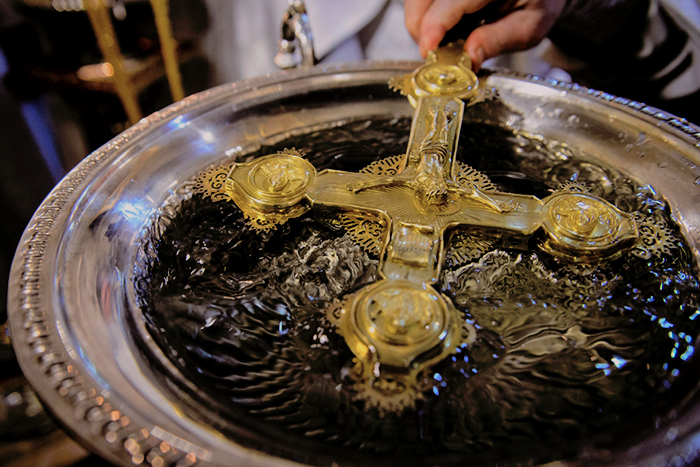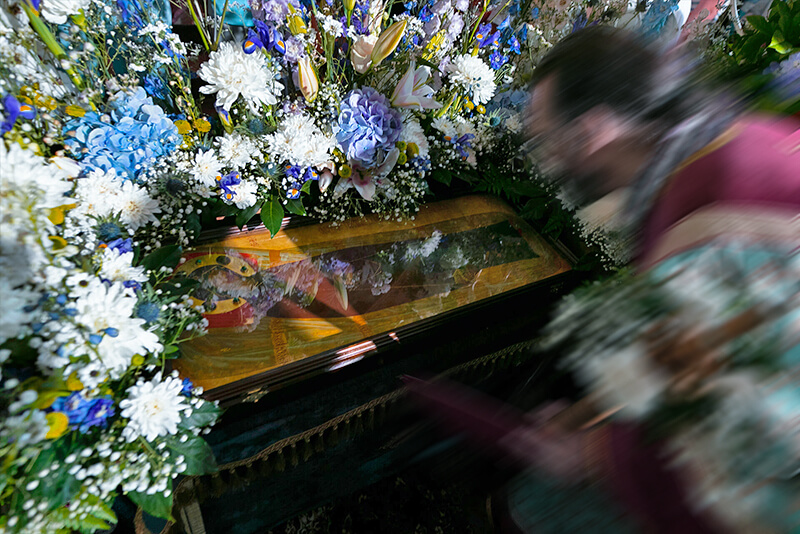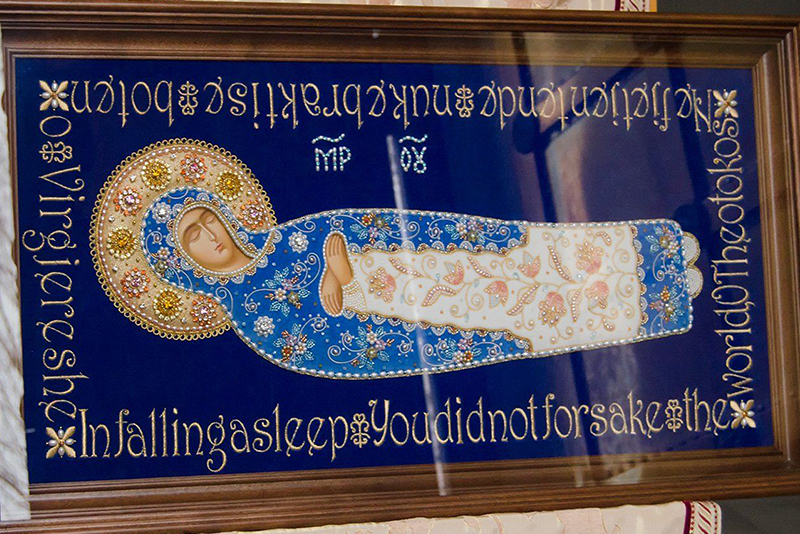
The great and bright feast of Epiphany is coming. It is called the Feast of Lights in liturgical texts because on this day the Church used to baptize catechumens, that is, to enlighten them with the Light of Truth, since the Lord Himself was anointed with the Holy Spirit on the day of His Baptism. The Feast of Epiphany is one of the earliest holidays of the Church of Christ, and therefore carries many archaic traces and interesting liturgical features that may raise certain questions. Let us try to resolve some of them.
Features of the Great Hours
The Great Hours are a rich collection of amazing biblical readings that can be heard only three times during the entire liturgical year: on Great Friday, Christmas, and Epiphany. They differ from the common hours in that they have special psalms tailored to the event, accompanied by the singing of a series of festive troparia, as well as biblical readings from the Old Testament, the Epistles and the Gospel. The importance and solemnity of this service was emphasized by the presence of the Emperor, hence its second name, the Royal Hours. The psalms and paremias were chosen in such a way that there was a mandatory mention of water or of the wonders associated with water, which foreshadow the New Testament events (“thou brakest the heads of the dragons in the waters”, Psalm 74:13). Epistle readings serve a different purpose: to reveal the meaning of the Sacrament of Baptism, that is, our dying and resurrection with Christ for a renewed life. The Gospel passages describe the events on the Jordan associated with the ministry of John the Baptist and the Baptism of the Lord.
Why Is the Liturgy Combined with the Vespers on the Eve of Christmas and Epiphany?
It may seem to some that it is all about some bizarre and obscure details, which nobody knows when they were invented and why. However, in fact, these features represent the Orthodox vision of the mutual dependence of the liturgical fast and its completion at the Eucharist. Christmas Eve is not just a fasting day that prepares us for the holiday. The Fathers of the Church, who composed our worship service, conceived it as an Eucharistic fast, ending with the Vespers, smoothly proceeding into the festive Liturgy because, according to church rules, the celebration of an event always begins in the preceding night. Epiphany Eve and Christmas Eve bear the traces of such archaic liturgical features. In modern practice, the Vespers on the eve of the holiday is shifted to the morning, and therefore this ancient feature of the Charter has lost its former meaning. The memory of the Eucharistic Fast has been transformed into a mandatory strict fast until the time when the first star appears in the sky. It coincides with the hour when the Liturgy is supposed to end if it were to last as long as had been intended by the Fathers (Archpriest Konstantin Nikolsky. Manual for the Study of the Divine Service of the Orthodox Church).
Why Does the Royal Hours Service Get Moved to Friday if the Vespers Falls on Saturday or Sunday?
The answer to this question also lies in the liturgical tradition of the Church, and even deeper, in the Gospel. The fact is that according to the thought of the Fathers, Saturday and Sunday, as strictly Eucharistic days, are not compatible with fasting, which is also confirmed by the service of a full liturgy on these days during the Lent, as opposed to the weekdays of the Lent. Can the children of the bridechamber mourn, as long as the bridegroom is with them? (Matthew 9:15). The Bridegroom is invisibly with us in the Sacrament of the Eucharist; we are united with Him, and the Kingdom of God enters us; therefore, fasting, as a time of waiting and preparation to meet God, finds its fulfillment at the Liturgy. Christmas Eve services were conceived as a service of Eucharistic fasting, which lasts all day until the time of communion, but it is impossible specifically on Saturdays and Sundays as days that are incompatible with fasting, so the service of the Great Hours is shifted to a weekday Friday (Archpriest Alexander Schmemann, Fast and Liturgy). Saturday and Sunday fasting during multi-day fasting seasons is associated with other types of fasting – ascetic, not Eucharistic.
Why Is the Liturgy of Saint Basil the Great Celebrated on the Christmas Eve but if the Eve Falls on the Weekend, They Celebrate the Liturgy of Saint John Chrysostom?
Historically, until the era of iconoclastic disputes, the main service of Christmas and Baptism was precisely the Vespers and Easter Eve Liturgy (The Rev. Michael Zheltov, associate professor. Easter Vigil, https://bogoslov.ru/article/399377), which is why the solemn Liturgy of St. Basil the Great was held. It was the liturgy of St. Basil the Great that was celebrated on all Sundays and holidays in Byzantium until the 10th century, while the less solemn Liturgy of St. John Chrysostom was celebrated on Saturdays and weekdays. However, the Eve could fall on weekends, which are liturgical in nature; those are the days on which the canons forbid a liturgy after the Vespers and that means that one should not observe the Eucharistic fast until the evening. In such cases, a simple St. John’s Liturgy is celebrated on Christmas Eve in the morning, and St. Basil’s Liturgy is postponed to the day of Christmas itself. The Royal Hours are shifted to Friday and the Liturgy is not celebrated at all on that day.



